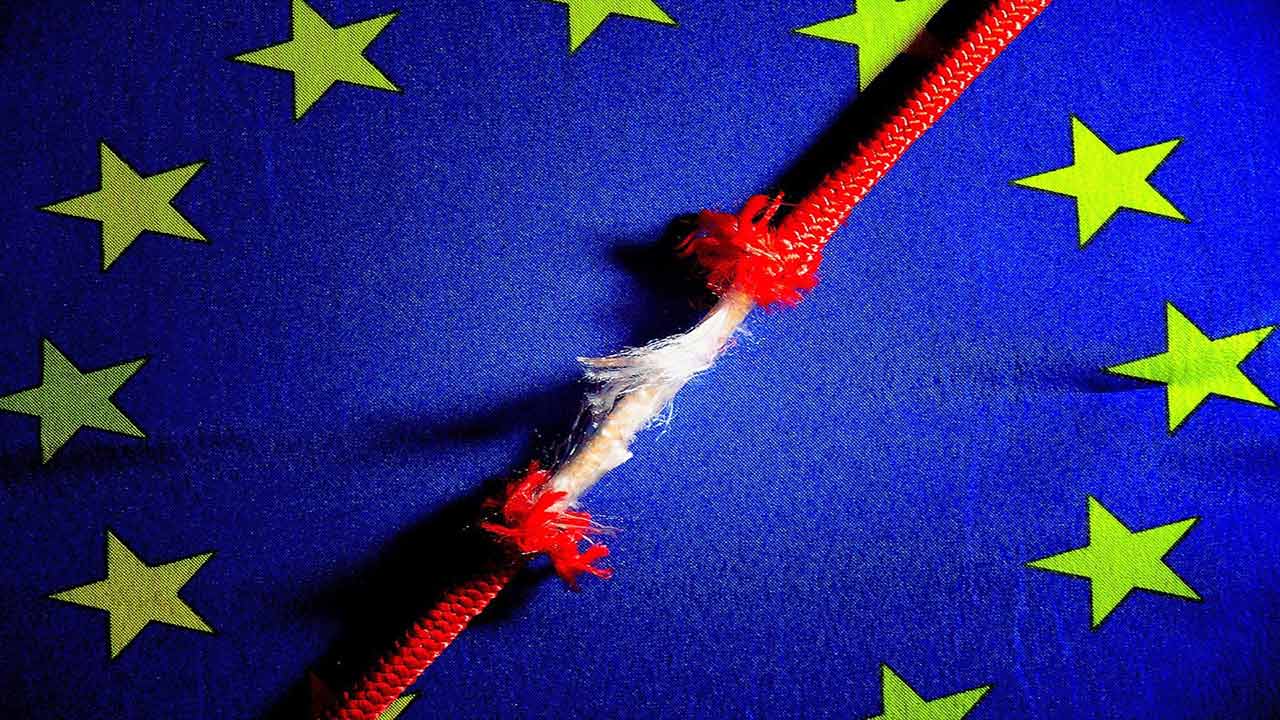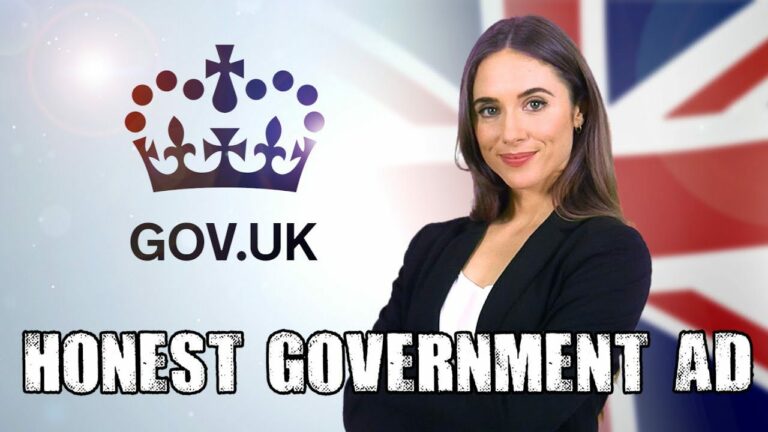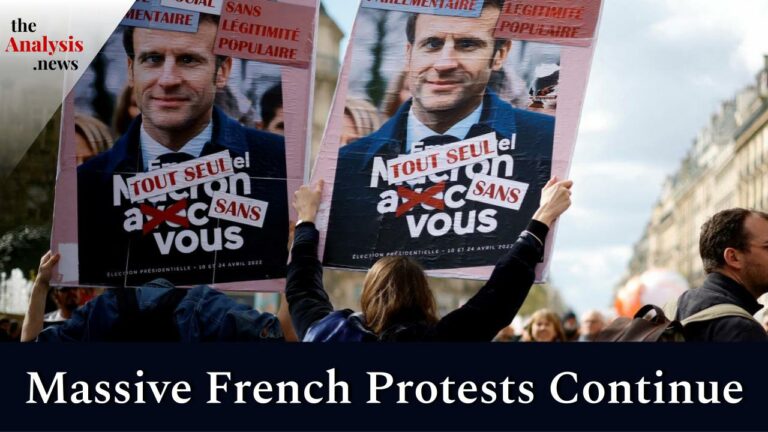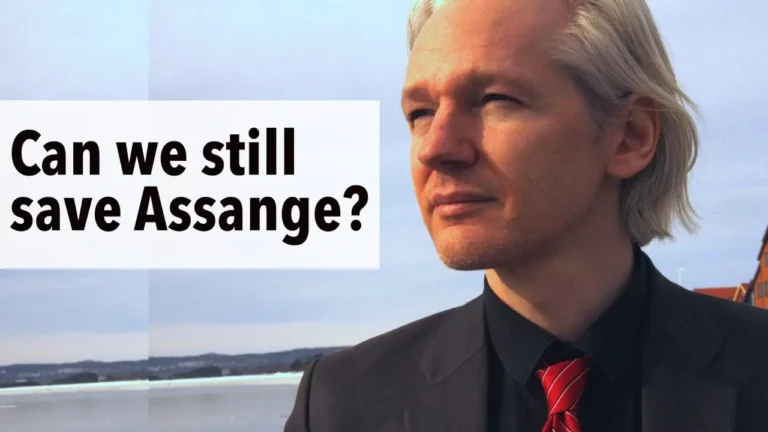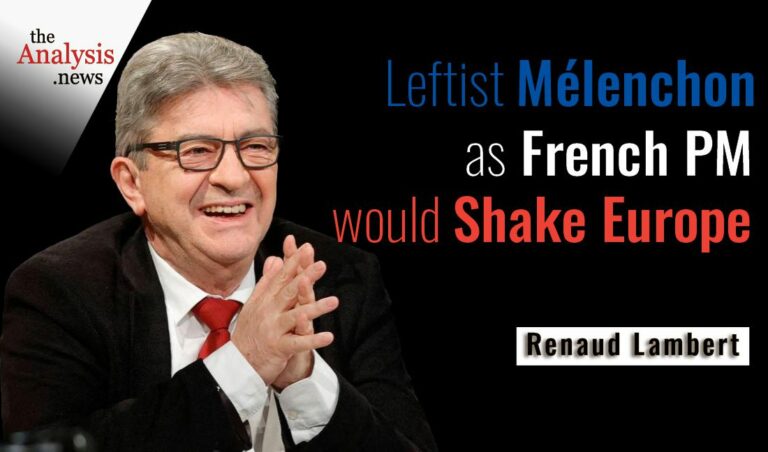The EURO Arrangement Is Faulty
Heiner Flassbeck shows it defies macroeconomic logic to promote surpluses for Germany, prohibit government deficits everywhere else and forbid the central bank from acting as the central bank of each and every EURO member.
Transcript
Lynn Fries / GPEnewsdocs
LYNN FRIES: Hello and welcome. It’s Global Political Economy newsdocs. I’m Lynn Fries. As the COVID-19 lockdown poses unprecedented problems for economic policy makers, some countries have more problems than others when it comes to implementing an effective and appropriate government response. The issue being dogmatic taboos and prejudices about debt management and monetary policy can stand in the way.
This newsdoc explores how that applies in Europe. More specifically, the European Monetary Union with its German doctrine that the central bank must under no circumstances finance state budget deficits. Here to talk to us about this is Heiner Flassbeck. A macroeconomist, Heiner Flassbeck is publisher and editor of “flassbeck economics international”. Prior to this he was Director of UNCTAD’s Division on Globalization and Development Strategies. From 1998-1999 Heiner Flassbeck was State Secretary in the German Federal Ministry of Finance. Welcome, Heiner. Thanks for joining us.
HEINER FLASSBECK: Thank you for inviting me.
FRIES: Heiner, as the COVID-19 lockdown is a state imposed standstill on the economy what is happening now with the shut down of production is a kind of shock which is different from what we’ve seen in other crises in the world economy. Let’s start there. Comment on how the governments are responding.
HEINER FLASSBECK: What the government does is just to buffer the negative income effects of this lockdown. And that’s a different thing. But nevertheless, the government needs a huge amount of money because we’re talking about something like a loss of 20% or at the end it will be 25% of our overall income of GDP, gross domestic product. Which is obviously a huge amount of money. And this is at least partly been compensated by government debt. And this government debt has to be financed to a very large part by the central banks. Because if this increase of government debt would lead to dramatically rising interest rates, that would really then be a big burden.
The central banks have to do their job which is to keep the interest rates low. And they do it, in part at least, by buying the papers that the government is issuing. So, giving credit to the government in an indirect way or in a direct way. In the United States is indirect, in the United Kingdom is direct, in Europe is indirect. So, but nevertheless, it’s always a financing that comes, the majority of the financing comes from central banks. So call it money printing or money creation, however you call it, but definitely the central banks by keeping the interest rates low are, so to say, providing the governments with the money that is needed to cushion, at least a little bit, the effect of the Corona shock.
FRIES: In Europe, there’s a lot of controversy about the role of the Central Bank. Tell us about that.
FLASSBECK: Well in Europe, to be concrete in the European Monetary Union, we have a very peculiar situation indeed. Because we have a central bank but that central bank is not obviously, it’s not obviously the central bank of each and every country. We have created by treaty, the Maastricht Treaty, a European Monetary Union which has dramatic flaws in the treaty already. So that the treaty says very clearly any kind of central bank financing for the government, for any government is forbidden. This leads to the curious situation that ‘weaker countries’ (in inverted commas), ‘weaker countries’ can have difficulties on the capital market to get the means that they need, the money that they need now to fight the crisis – like Italy.And this is a really stupid arrangement in Europe. It would be very simple to solve the problem in the European Monetary Union if, as I said; the central bank would behave as the central bank of each and every country. Because then the central bank would do what she does in all countries of the world, more or less, she would go to the capital market and keep interest rates low. But keeping Italian interest rates as low as German interest rates is already seen by many in Europe as a violation of the Treaty.
It is urgently needed to change this arrangement. And to give the ECB, the European Central Bank, the freedom to do what is necessary to keep the interest rates of all Members low and to fight the capital market. Now the ECB has found a pragmatic way to deal with it. They have a new program, a pandemic program. And they said they are much more flexible in this program than ever before. And the markets have clearly interpreted this in a way that they say – Oh, be careful if you speculate against Italy the ECB may be so flexible that she would counteract. And she would avoid that the Italian interest rates go up so that the spread between Italy and Germany rises. So, it’s somewhere in the gray zone of legality. But, what the ECB does is absolutely reasonable. The problem is that the politicians, in particular in Germany, do not want to discuss this openly. Now we have even a court, the highest German court, ruling that the ECB policy is inadequate to a certain extent. Which brings in a new danger to the whole arrangement. So that it is not quite clear how the ECB fends off this accusation.
The signals that we have now from the judges that were behind this ruling – uh well, they say, oh, we didn’t mean it exactly like this. And so they are really surprised by the harsh criticism all around the world. They were called stupid by many people, not only by me. And they are really, really shocked to a certain extent. And I think the German government will try to arrange something behind the scenes as usual. This is the German way or the European way to deal with things. We do something behind the scenes. So we have a lot of telephone calls and we try to settle without explaining and without attacking the real problem which is behind that. I think they will find a way. And the court will not complain because as I said, the court itself is shocked by the reaction to its ruling.
FRIES: In a commentary about this ruling on the European Central Bank by the German Constitutional Court you wrote that – economic logic is not the domain of jurisprudence. The upshot being, the way you see it,the judges got lost in what you called a complex economic jungle. As macroeconomist, what do you think is one the things least understood about macroeconomics.
FLASSBECK: What many people do not understand, unfortunately, is the interconnection, the interrelationship between current account balances and the public budget and the rest of the saving and debt balances that we have in an economy. The simple thing is that wherever there’s a saver, there must be a debtor. You cannot have one group of the economy saving without another group being indebted. So the traditional arrangement in the whole world was in the ‘60s, 1950’s-1960s, when we had wonderfully booming economies, the arrangement was private households would be savers/net savers, and the companies would be the net debtors. And the government would keep out and externally [foreigners] not much would happen. So now that has changed dramatically in the last 10-15 years. Now we have companies – well as a result of the Neoliberal Revolution obviously – we have the wonderful world where we do not have this traditional arrangement anymore. Some people say we do not have a market economy anymore because what happened – we now have the companies as net savers in most countries – the United States and Europe, more-or-less everywhere, Japan in particular. But if the companies are net savers also we have private households net savers then obviously for the world as a whole there’s only one party that can be a debtor. For the world as a whole – that’s the government. There is nothing else.
But smaller countries or middle countries like Germany can go for a ‘solution’. ‘Solution’ again in inverted commas which means – Oh, the foreigners can be the debtors. So if you are able to achieve a current account surplus, you’re in a wonderful situation that the foreigners are the debtors and inside the country all the sectors can be savers. So even the government in Germany was a net saver in the last five to six years. Which is really stupid solution because that means that other countries are not able to reduce their government deficits. Because if you’re a deficit country in Europe and particularly in the Monetary Union – like France and Italy has formally a surplus but it’s a deficit country because it has lost competitiveness vis-a-vis Germany – so if you have lost competitiveness and you are not able to go for a current account surplus in a growing economy as Germany did because Germany prevents you from doing that then you end up with a situation if your companies are also net savers that the government has to go for deficit. The government has to allow deficits if the government does want to avoid a permanent recession or permanent standstill or permanent downfall of the overall economy. So that for logical reasons, Italy could not do what the Germans did.
And so here comes now the political dimension of this. Now the Germans say – Oh, we are strong. We have done the right thing. The Italians are weak they have done the wrong thing. And this is stupid – if the surplus country that definitely needs the deficit country for doing what it does says but I’m the good guy and you’re the bad guy.
FRIES: Other economists that I’ve have talked to about this myth or prejudice that ‘surplus countries are good’ and ‘deficit countries are bad’ explain that at the world level – income equals demand. So at the national level when a country like Germany runs a surplus that means their level of demand is below their level of income. Do you agree with that?
FLASSBECK: Absolutely. They’re living below their means, as we say. Germany’s living below its means. It spends less than it could and should. And that means other countries are lacking demand. So a country like France that has a deficit with Germany is lacking demand from its own savers; it’s lacking demand from its own companies; and it’s lacking demand from the foreign trade, in foreign trade. And that means it’s overall lacking demand. So who could compensate for that? There’s only one group left logically and this is the government. So the government has to go and create demand so to say, by living beyond its means. The government has to spend money, as some stupid people in Germany say the government spends money that it doesn’t have. But this is exactly what is needed. The government has to spend money that it doesn’t have. Because all the others have money but they do not spend. This has to be compensated. Otherwise any economy in the world would collapse in a very short time. So this is obviously what we have to learn. This is macro economic logic. Call it logic; it’s bookkeeping more or less. But unfortunately, it’s not understood by very many people. And it’s not understood by the majority of our traditionally trained neoclassical economists.
FRIES: In an OPED called Corona, Politics and the European Challenge you drew attention to the fact that Germany had a trade surplus with Italy, France and Spain of 63 billion euros in 2019; and that the volume of trade between these countries was 376 billion euros. Explain the point you go on to make that if these three economies collapse severely for a long time, Germany will not be able to expect a recovery for a very long time, not to mention the political consequences. I should also note in parenthesis that after Germany – France, Italy, and Spain are the second, third, and fourth largest economies in the European Union.
FLASSBECK: Yeah. That’s absolutely right.Germany needs these countries. Germany needs Europe more than any other country because Germany is dependent on exports more than any other big country in the world. The export share in the GDP is 50%, this is extraordinary. It’s absurd for such a big country to have such a huge export share. A country like Switzerland can have it or others or the Netherlands but for Germany it is really absurd. But it depends…So its whole structure is biased towards exports. And if this breaks down in one way or the other then Germany will be hit by the crisis much more than other countries. And if Italy, France, and Spain and others do not get out of this crisis in a reasonable way, then Germany will be hit more than the others. There’s no doubt about it.
FRIES: Heiner, the European Stability Mechanism, the program designed about a decade ago as the EU bailout fund at the time of the European sovereign debt crisis has been widely criticized as not getting at the real problem but just kicking the can down the road – extend and pretend. But not only for that also for its loan conditionalities – in other words austerity – which were seen as damaging and brutal. That austerity was justified by blaming the recipient countries for profligacy. Like at that time, Greece was at the receiving end of the moral hazard argument that weak or bad governments should not be rewarded with cheap credits. In the current corona crisis, no one is blaming Italy or Spain for profligacy. But just the same, a proposal for Euro or Corona bonds by 9 EU Member States – including Italy and Spain – was rejected. Germany and the Netherlands rejected the proposal as you’ve explained because they were unwilling to accept shared debt without the power to impose further structural reforms on so-called weaker economies.
FLASSBECK: Well again, the Europeans have not really learned the lesson of the last 10 years. We should have understood this relationship that I explained between government balances and private balances but which many politicians at least do not have and economists as well. Which is a big problem because we need exactly this logic to get out of the trouble in which we are. Because as I said before, only if we’re able to spend; only if the government is able to do its job at this moment of time then there’s a way out of the crisis. If we go back to austerity or, as many people start talking now, we go back to a period of 20 years of saving and of restricting, well then, Europe will be definitely dead in a couple of years. Because then, it’s quite clear that the electorate will not go with these politicians anymore that are ruling us now but they will go to the right. They will go to nationalist parties and the nationalist parties will then destroy Europe. This is a possibility and it’s getting more probable day by day.
FRIES: This is a quote from your OPED Monsieur Macron, the Germans and Europe: “Perhaps never before, has a French President said so clearly that the way some northern EU nations are currently conducting themselves can very quickly bring about the end of Europe. He warns strongly against ‘populism’, the nationalist forces that could gain the upper hand in southern Europe and in his own country”. And also that “Macron clearly understands the consequences by pointing to a historical error of his own country, which is still not understood and appreciated in Germany of all countries… He says [Macron] that it was a major mistake of the Allies after the First World War to insist on German reparations in the Treaty of Versailles”.
FLASSBECK: Yeah, indeed. I’m not a fan of a President Macron but at a certain point, it was two or three weeks ago, he gave an interview to the Financial Times where he spoke out very clearly and with a lot of insight that I did not expect to see coming out of him. He said very clearly that Europe cannot continue like this. And then to my big surprise he really mentioned the problem that had arisen after the First World War where the Allies forced Germany to pay reparations. And one person in the world obviously knew that it would end up in disaster and that person was John Maynard Keynes. And he called this problem the Transfer Problem. That is the problem that you cannot create a current account surplus – which is what Germany would have needed at that time – if your partners do not allow you to do that if they defend their current account surpluses. So this is indeed a dramatic similarity to today’s situation. Because Italy would have to create a current account surplus but Germany is insisting that it sits on its current account surplus and fighting anything Italy could do to create a current account surplus. So at the same time, the Germans ask Italy to reduce its debt. Which is impossible if Italy cannot create a current account surplus. And this is the paradox that was at that time created by the Transfer Problem – how Keynes called it. And as I said, Keynes was – as much as I know – the only person in the whole world who understood this macro-economic logic. But it’s exactly the logic I’ve been talking about before when I talked about the fiscal balances inside an economy and the surpluses and deficits.
And the tragedy is that today in today’s world; nobody in Germany understands this logic anymore.
This is the core of the matter in Europe. But coming back to Macron let me say one thing that is important. Now yesterday [May 18, 2020] Macron and Merkel came with a new initiative to spend money in Southern Europe, in the ‘weaker countries’ again. But this is exactly the way they always try to solve problems in Europe. Namely, there is a problem now. There is a huge tension between Germany and France after the Macron interview and after this ruling of the German Court. Now they come together. They say: Oh, we’re creating a new program. We’ll show that the axis between France and Germany is working. That it’s functioning, pushing Europe ahead.
They’re not talking about the real problems of the Monetary Union. They do not address these problems. They do not tackle these problems but they paper it over by a new program. Nobody nobody knows what it will be the outcome? Whether it will be done or not. This is the kind of window dressing that they do all they time in Europe. And this is the big problem. And this is a big mistake, that the politicians are not open or not able. I don’t know. Not open and not able to really talk straight about these problems and try to solve these problems.
As long as the Eurogroup or the European Finance Ministers including the Central Bank do not agree on the simple rule that says this central bank is the central bank of each and every country then the uncertainty remains and the countries cannot act as they should to fight these disastrous outcomes of the Corona shock.
FRIES: Heiner Flassbeck, thank you.
FLASSBECK: Thank you for having me.
FRIES: And from Geneva, Switzerland thank you for joining us for this episode of Global Political Economy or GPEnewsdocs.
***
Heiner Flassbeck is a German economist and public intellectual. From 1998 to 1999 he was a State Secretary (Vice Minister) in the German Federal Ministry of Finance where he also advised former finance minister Oskar Lafontaine on a reform of the European Monetary System. From 2000- 2012 Flassbeck worked for the UN Geneva at UNCTAD. As Director of the Division on Globalisation and Development Strategies, he was lead author of UNCTAD’s flagship Trade and Development Report. Since January 2013, Heiner Flassbeck has been Director of Flassbeck-Economics, a consultancy for global macroeconomic questions (www.flassbeck-economics.com).
